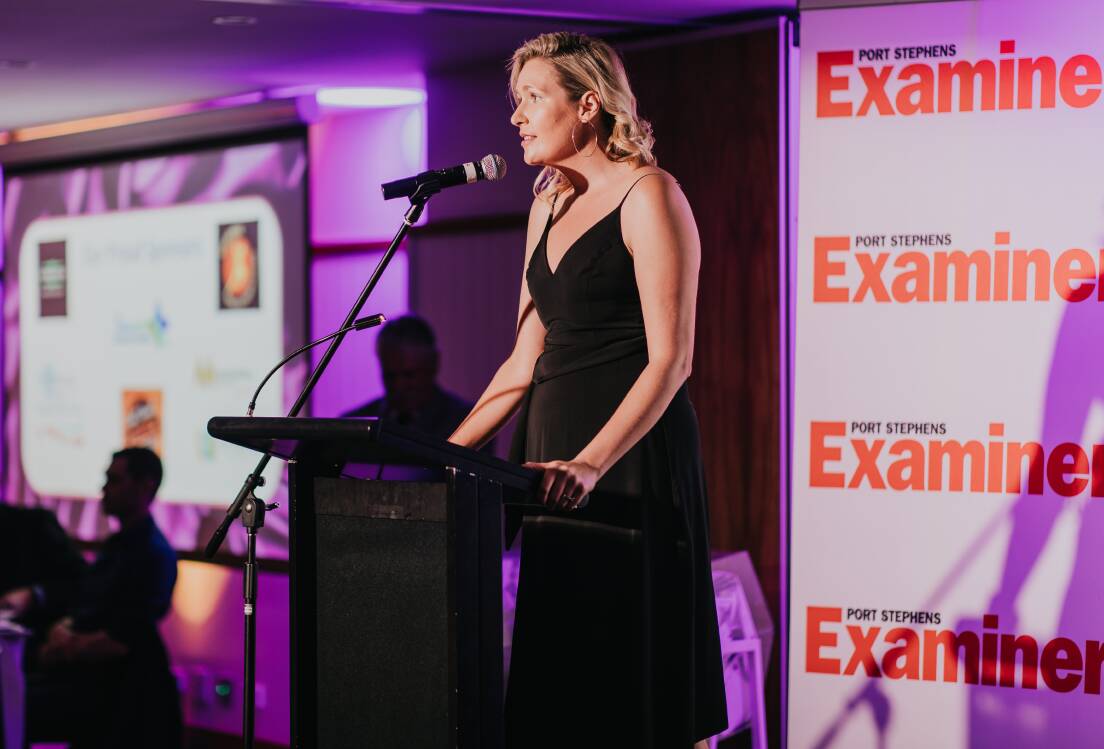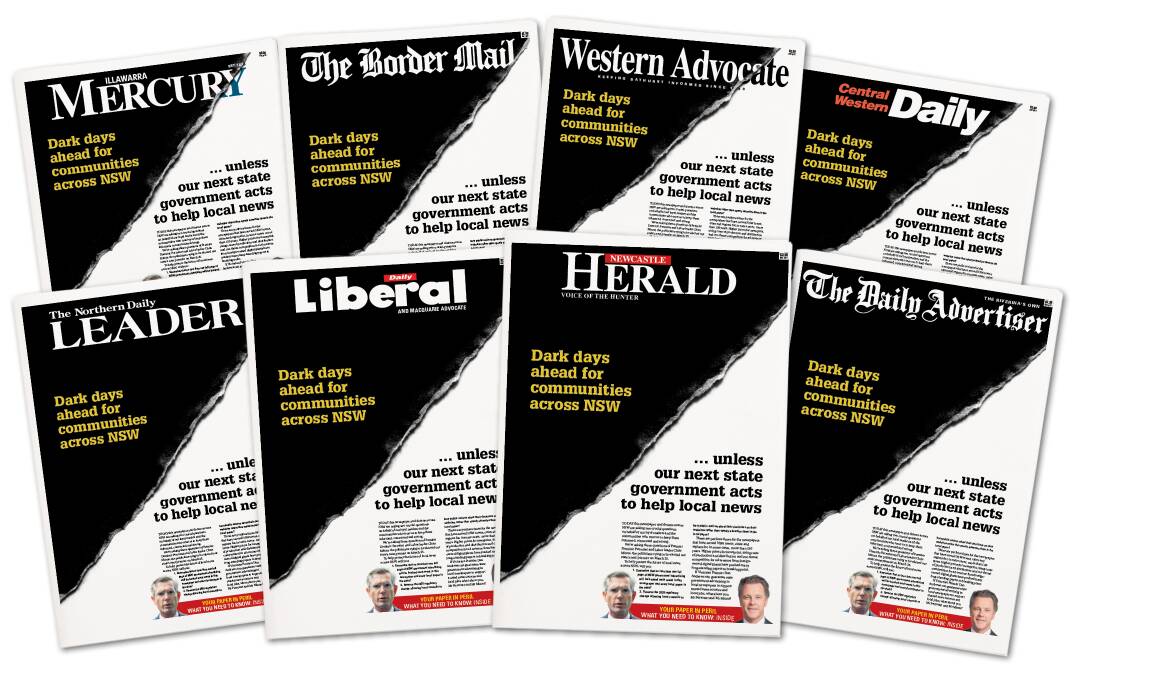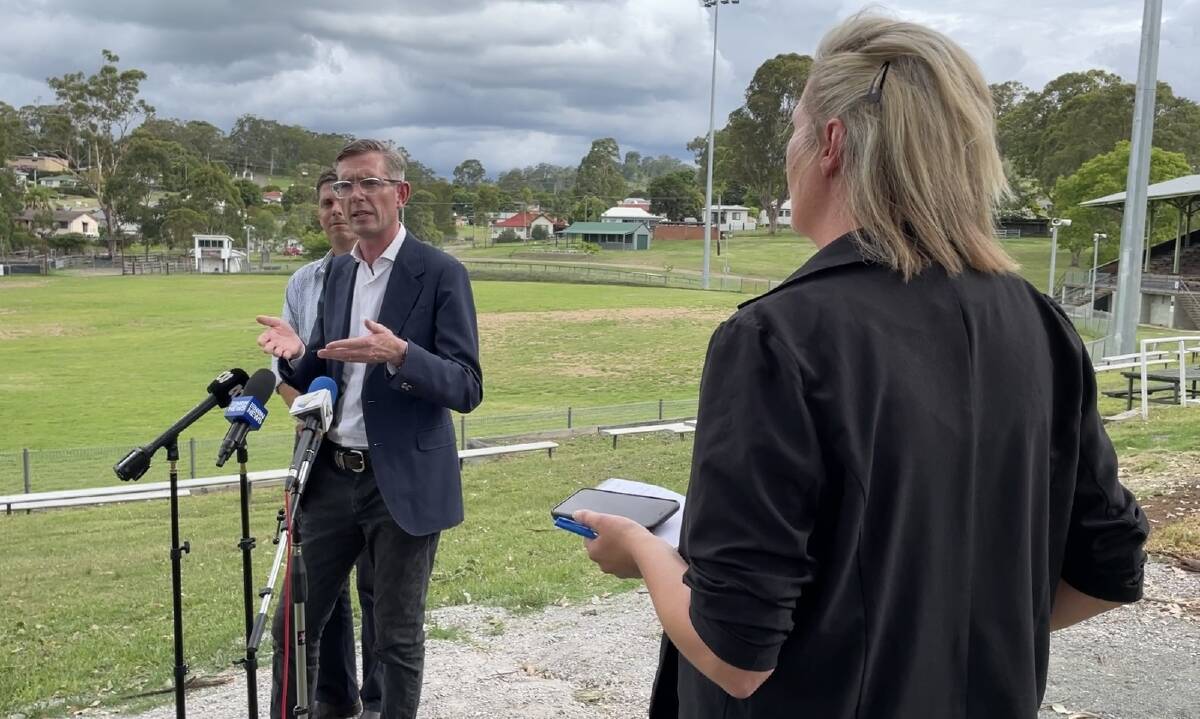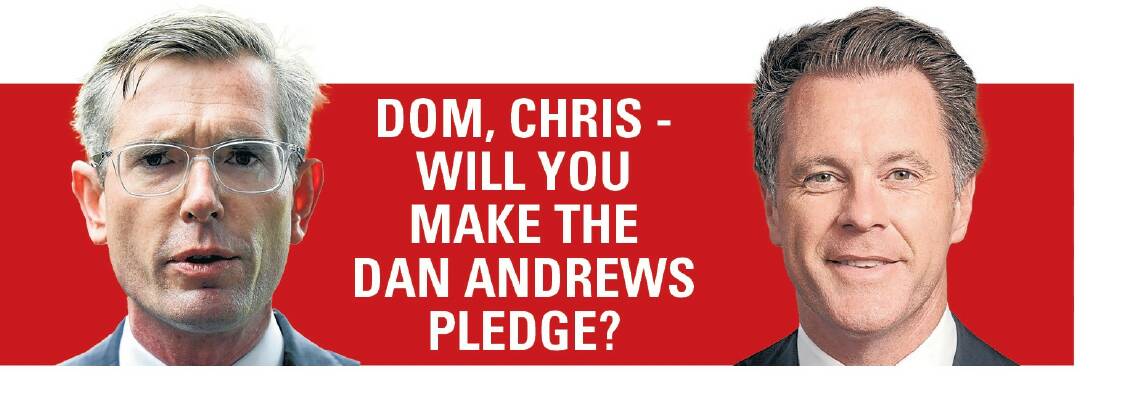THE bitter coincidence was not lost on newspaper editor Anna Wolf.
When her paper published an open letter on its front page in December warning readers that it was in imminent danger of closing, the very same edition carried a special 20-page wraparound souvenir showcasing dozens of winners celebrating at the annual local business awards.
"Given how much the paper's done over the years backing local businesses, as well as sports clubs, schools and all the other aspects of community life here, that was a pretty painful juxtaposition," Wolf said.
Under the headline "We need your help", the Port Stephens Examiner told readers on December 8 that it would be forced to cease printing without the assistance of government, business and the community.
"Like many local newspapers around Australia, thanks to a massive increase in printing costs, we are battling to survive," the paper said. "It is a fight we are losing."

Part of the ACM network, which also publishes this newspaper, the Port Stephens Examiner is a free weekly paper covering towns north of Newcastle such as Nelson Bay and Raymond Terrace.
Whether the newspaper, which traces its origins back to 1893 and the Gloucester Examiner and Lower Hunter and Williams River Advertiser, will still be printing when its 130th anniversary rolls around in November looks increasingly unlikely.
After ACM management told Wolf and her team the Examiner would close in December, local state MP Kate Washington led the call for a stay of execution so she could discuss with party colleagues what Labor might do to support regional newspapers if it wins government at the March election.

- Your Paper in Peril: How council notices in the local newspaper are 'improving transparency and accountability'
Since the Examiner's call for help, Port Stephens Council has resumed weekly advertising of development applications - ads that were withdrawn in 2020 after the state government altered traditional regulations requiring councils to run notices in local papers - and readers have expressed their support on social media, in letters to the editor and by signing up as digital subscribers.
ACM managing director Tony Kendall says the community response has been heartening.
"It's clear the people of Port Stephens, like all the communities we serve, care deeply about having a trusted source of local news," he said.
"But what's still not clear after a number of calls and meetings over the past few months is whether the next NSW government will commit to regular advertising that supports local newspapers.
"Diverting a modest portion of an otherwise huge government advertising budget is an elegant way of helping local newspapers overcome their challenges while also ensuring that important messages about government services reach local communities."
- Your Paper in Peril: So, what about it Dom, Chris? Will you make the Dan Andrews pledge?
The Dan Andrews pledge
This week, ACM's newspapers across the state are uniting on behalf of their loyal readers to ask Premier Dominic Perrottet and his challenger, Labor's Chris Minns, two questions ahead of the March 25 election.
To help protect the future of local news across NSW, will they:
- Guarantee that no less than one full page of NSW government advertising will be booked each week in this newspaper and every local paper in the state?
- Reverse the 2020 regulatory change allowing local councils to bury public notices about their decisions on their own websites rather than openly advertise them in the local paper?
Mr Perrottet hinted last week that his government had been looking at ways to "ensure regional press is given further government advertising across the board".
During the Premier's visit to Dungog to announce $1million for new community projects, Examiner editor Anna Wolf asked if he would do what Victorian Premier Dan Andrews did before his re-election in November and commit to regular government advertising in local newspapers.

"This is something we are doing and looking to do more," Mr Perrottet said. "In fact Bronnie Taylor, the deputy leader of the National Party, regularly raises this with me and the Deputy Premier. I was in a meeting probably two weeks ago where this issue was raised and the assurance that we received from the department is that we're doing just that."
With the offices of the Premier and Ms Taylor yet to provide details of any Liberal-Nationals plan, Labor's Mr Minns has also given no indication that he intends to follow the lead of his Victorian counterpart.
Mr Andrews, in announcing his guarantee of one full page of Victorian government advertising in every regional paper every week, described local newspapers as the lifeblood of their communities.
That was why his government had already spent more than $20 million during the pandemic on advertising in regional media and "supporting jobs and protecting local news".
"Whether it's a bushfire, a flood emergency or a global pandemic, time and time again we have seen regional newspapers step up and serve their communities in incredibly important ways," Mr Andrews said.
"Labor is doing what matters - backing regional media outlets with guaranteed advertising revenue so they can keep supporting their local communities."

Government ads have been appearing weekly since December, with a variety of departments advertising in papers such as ACM's Bendigo Advertiser, The Courier in Ballarat and The Standard in Warrnambool, including health, education, transport and justice and community safety, as well as the National Gallery of Victoria for its Alexander McQueen exhibition.
Together with Country Press Australia, the industry body representing hundreds of small regional newspapers, ACM has been urging the federal and state governments to make the Dan Andrews pledge.
"We're very grateful for the federal government's PING (Public Interest News Gathering) grant at the height of the COVID lockdowns and last year's emergency relief when newsprint prices jumped by 80 per cent," ACM's Mr Kendall said.
Programs like the NSW government's recently announced $3million Regional Media Fund - grants of up to $60,000 for innovation projects that get small rural newspapers moving online or experimenting with podcasts and social media - had merit but they didn't provide a stable financial footing for the industry to build its future success.
"Regional newspapers want a leg up, not a handout," Mr Kendall said.
"Our readers support independent public interest journalism that keeps their community strong, informed and connected. We're not asking for more taxpayer dollars to be spent on state government advertising, only that a portion of existing ad budgets be devoted to buying local and backing local papers and jobs."








